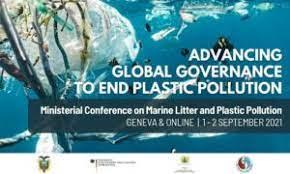
https://ministerialconferenceonmarinelitter.com/
https://ministerialconferenceonmarinelitter.com/documents/
Article covering the conference: http://sdg.iisd.org/news/ministerial-calls-for-global-agreement-on-marin...
Context of the conference
The Conference offers a platform for informal consultations in the lead up to the second part of the 5th UN Environment Assembly (UNEA), building on the mandates from the 3rd and 4th sessions of UNEA (UNEA 3/7 and 4/6) on tackling marine litter and microplastics and the findings of the ad hoc open-ended expert group on marine litter and microplastics.
With a view to taking the next decisive steps towards starting negotiations on a new global instrument complementing the existing framework, we invite you to join the conference to express your views and would appreciate your support for the intended Ministerial statement.
The goal of the Conference is to build momentum and political will to advance a coherent global strategy to end marine litter and plastic pollution thus ensuring a future with clean seas.
Marine Litter and Plastic Pollution
Marine litter and plastic pollution have long been in the global spotlight.
Up to twelve million tonnes of plastic waste end up in
our oceans every year, where marine wildlife ingest or are entangled by plastic debris,
causing injury and death. Plastic pollution also has negative impacts on food safety and quality,
human health and coastal tourism, and contributes to climate change. In spite of this, the flow of
plastic into the ocean continues, and is projected to nearly triple by 2040.










Add new comment